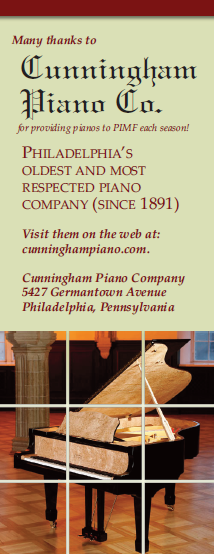 Handel’s Messiah is the most celebrated Christmas music in the world. Since its debut in 1742 it has moved the masses. It continues to bring audiences to their feet today, nearly 275 years after it first performance in Dublin, Ireland.
Handel’s Messiah is the most celebrated Christmas music in the world. Since its debut in 1742 it has moved the masses. It continues to bring audiences to their feet today, nearly 275 years after it first performance in Dublin, Ireland.
Though the work is firmly associated with Christmas in our day, it was originally performed at Easter time. Messiah was an attempt – according to Handel – at “a meditation of our Lord as Messiah in Christian thought and belief.” It presents the birth, passion, and resurrection of Jesus Christ in a form similar to opera. The libretto, by English librettist Charles Jennens, uses texts from the King James Bible to give an impressionistic portrait of its subject. Though similar to an opera in form and three-act structure, it is unusual in that it has no characters, per se, and no theatrical dramatization of its theme. It is a more poetic, contemplative version of Christ’s story, from Old Testament prophecy, through Christ’s birth, passion, death and resurrection.
The musical composition was written by Handel in a twenty-four day burst of inspiration. He worked from sunrise to sunset every day, filling up pages as the work came to him. The original copy of the work is 259 pages long, and though there are some mistakes and corrections in the manuscript, the number is remarkably small for a work of that length–as if it came to him nearly perfect and whole during the compositional process. It is said that when Handel wrote the “Hallelujah Chorus” section of Messiah, “he saw all heaven before him.”
The orchestra for the debut performance consisted of strings, two trumpets, a timpani, and Handel’s own organ, shipped to Ireland for the occasion. The vocal parts were performed by members St Patrick’s and Christ Churchcathedrals’ choirs. Over 700 people attended the event, and ladies were told not to wear hoops in their skirts, in order to make room for the crowd. Proceeds from the performance went to assist several local charitable causes. It was a hugely successful performance, and according to a news report of the time, it gave “exquisite delight…to the admiring and crowded audience.”
Subsequent performances in London were not as successful, but there is a legend that the tradition of standing during the “Hallelujah Chorus” was started at its London premiere, when King George II did so, and the whole crowd rose to join him.
After Handel’s death Messiah was often performed at festivals and in cathedrals, and portions of it started to be used during church services. It also became a favorite of amateur choirs, and its popularity continued to grow exponentially into the Victorian age.
Based on this work, Beethoven called Handel, “The greatest composer that ever lived.” Messiah remains one of the most eloquent expressions of the Christian faith, and one of the most powerful and inspirational musical works of all time. It has a rare, timeless ability to move the heart and elevate the soul.



